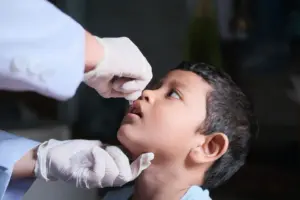
An international study has warned that Asia is set to face a staggering 10.6 million new cases of gastric cancer among individuals born between 2008 and 2017, placing the continent at the heart of a growing global health crisis.
Published in Nature Medicine, the research estimates that over 15 million people worldwide from this generation are at risk of developing gastric cancer in their lifetime. Alarmingly, China and India together account for more than 6.5 million of these projected cases, indicating that there must be urgent intervention in these densely populated nations.
With India alone expected to report over 1.6 million cases, it ranks as the second-highest contributor globally, just behind China.
Also Read | Cervical cancer risk persists for women over 65, study finds
Conducted by scientists from the International Agency for Research on Cancer (IARC), the cancer research arm of the World Health Organization, the study analysed global data from 185 countries using the GLOBOCAN 2022 database and UN demographic projections.
The report attributes 76% of the projected gastric cancer cases to persistent infections caused by Helicobacter pylori, a common bacterium that often goes undiagnosed in many parts of Asia. This infection, which can lead to chronic inflammation of the stomach lining, is a major but preventable cause of gastric cancer, the fifth leading cause of cancer death globally.
The findings are especially concerning because they point to a growing incidence among younger age groups, coupled with the challenges of an ageing population.
The researchers suggest population-wide screening for H. pylori and early treatment, which could potentially prevent up to 75% of future gastric cancer cases in Asia. Countries like South Korea and Japan, which have invested in national gastric cancer screening programs, are already seeing better outcomes, the study said.








